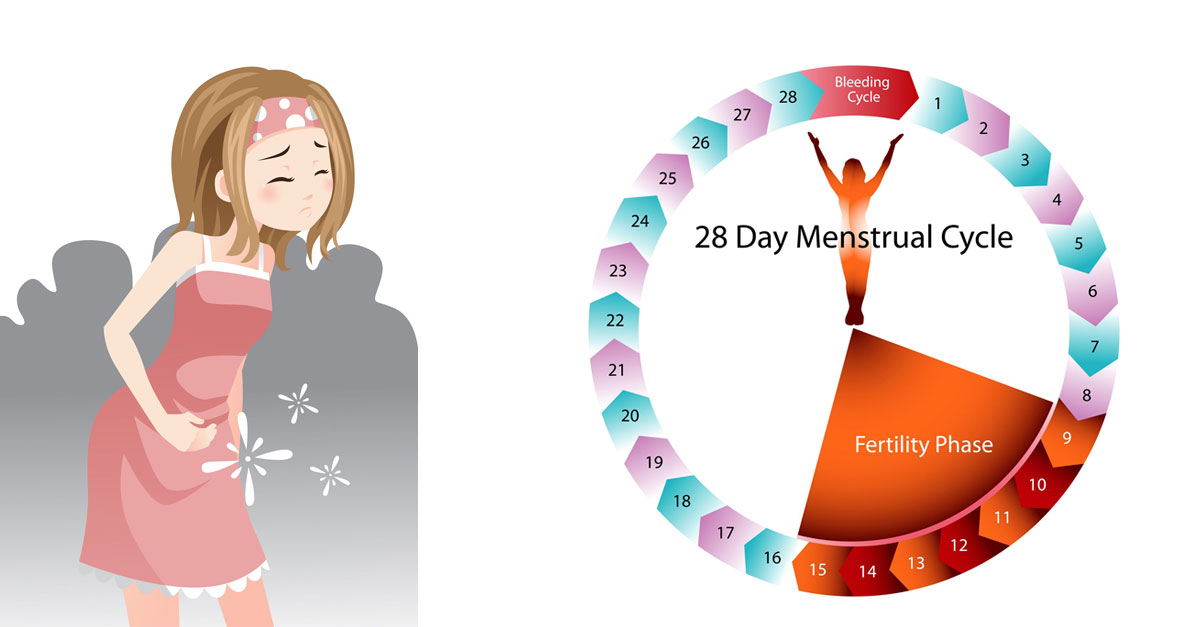Bleeding between menstrual periods (e.g., abnormal uterine bleeding, dysfunctional uterine bleeding, spotting) is a common type of menstrual disorder among women of reproductive age in the world today.
Abnormal uterine bleeding can be a symptom of another medical condition, which can vary from minor medical issues to very serious issues.
Abnormal uterine bleeding is irregular uterine bleeding that occurs in the absence of recognizable pelvic pathology, general medical disease or pregnancy.
It reflects a disruption in the normal cyclic pattern of ovulatory hormonal stimulation to the endometrial lining.
Abnormal uterine bleeding means that periods may be heavier or last longer than normal or not come at all.
The underlying causes may include ovulation problems, fibroids, the lining of the uterus growing into the uterine wall, uterine polyps, underlying bleeding problems, side effects from birth control, or cancer.
Also, more than one category of causes may apply in an individual case.
Conditions that may cause abnormal uterine bleeding include:
- Blood clotting disorders or use of certain anticoagulant medications.
- Cancer of the cervix, vagina, or uterus.
- Chronic medical conditions, such as thyroid problems or diabetes.
- Complications caused by birth control pills, an IUD (intrauterine device), or pregnancy.
- Pelvic inflammatory disease (PID; infection in the reproductive system).
- Polycystic Ovarian Syndrome (PCOS caused by a hormonal imbalance)
- Uterine fibroids or uterine polyps (non-cancerous tumours of the uterus)
10% of abnormal uterine bleeding cases occur in women who are ovulating, but progesterone secretion in them is prolonged because oestrogen levels are low.
This causes irregular shedding of the uterine lining and break-through bleeding.
Some evidence has associated this kind of abnormal bleeding with more fragile blood vessels in the uterus.
It may represent a possible endocrine dysfunction, resulting in menorrhagia or metrorrhagia.
Mid-cycle bleeding may indicate transient oestrogen decline, while late-cycle bleeding may indicate progesterone deficiency.
Also, about 90% of abnormal bleeding events occur when ovulation is not occurring (Anovulatory DUB). Anovulatory menstrual cycles are common at the extremes of reproductive age, such as early puberty and perimenopause (period around menopause).
In such cases, women do not properly develop and release a mature egg. When this happens, the corpus luteum, which is a mound of tissue that produces progesterone, does not form.
As a result, oestrogen is produced continuously, causing an overgrowth of the uterus lining. The period is delayed in such cases, and when it occurs, menstruation can be very heavy and prolonged.
Sometimes anovulatory DUB is due to a delay in the full maturation of the reproductive system in teenagers. Usually, however, the mechanisms are unknown.
The cause of this can be psychological stress, weight (obesity, anorexia, or a rapid change), exercise, endocrinopathy, neoplasm, drugs, or it may be otherwise unknown.
Diagnosis and Treatment of Abnormal Uterine Bleeding
Diagnosis of abnormal uterine bleeding starts with a medical history and physical examination.
Testing the hemoglobin level and doing a pelvic ultrasound is often done. Ultrasound is specifically recommended in those over the age of 35 or in who bleeding continues despite initial treatment.
Laboratory assessment of luteinizing hormone (LH), follicle stimulating hormone (FSH), prolactin, T4, thyroid stimulating hormone (TSH), pregnancy (by βhCG), and androgen profile should also happen.
More extensive testing might include an MRI and an endometrial sampling. Endometrial sampling is recommended in those over the age of 45 who do not improve with treatment and in those with inter-menstrual bleeding that persists.
Treatment depends on the underlying cause.
However, a remedy we have recommended for a lot of women facing this kind of challenge can found by clicking here.
If you found this article helpful, do not hesitate to share it with other women to also benefit from it.
What has been your greatest challenge concerning your monthly period and fertility? Tell us in the comment box below, let’s have a conversation and see how you can be assisted.
Stay Healthy And Never Give Up!
Plan B Wellness
Email: consult@planbwellness.com
WhatsApp/Text/Call: +2348099666650









I’m having abnormal flows I can menstruate even for two weeks.. I once got pregnant and miscarried when I was four months now I’m trying for a baby but no luck please help
@Siphethokunle,
Sorry about your experience.
Kindly contact us by either sending an email to consult@planbwellness.com or via whatsapp on +2348099666650 for a proper discussion on the case and how we can be of help to improve your fertility and get pregnant.
Thanks
Plan B Wellness
[…] levels of oestrogen may put you at higher risk of blood clots and […]
[…] condition causes symptoms that can negatively impact women’s quality of life, such as pain, abnormal bleeding, and fertility […]
[…] irregular bleeding […]